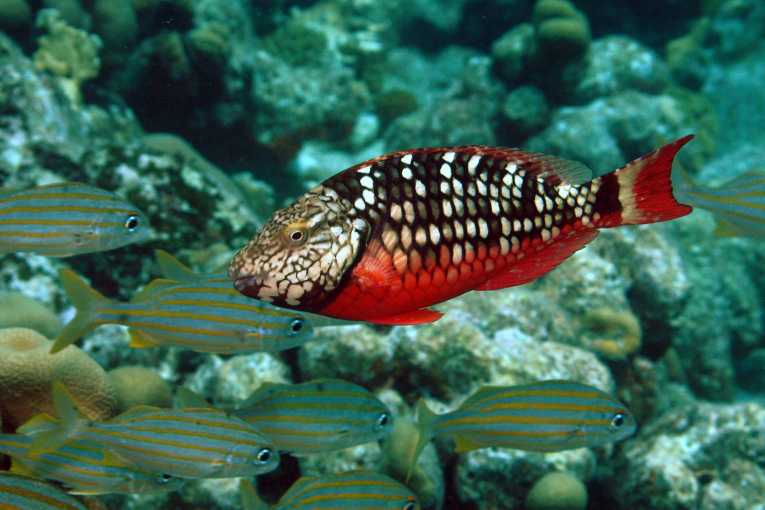Efforts to prevent the avalanching collapse of biodiversity around the globe are failing, two respected ecological researchers claim today. Despite the number and size of protected reserves leaping ahead - both at land and sea - the collapse in biodiversity has, if anything, quickened. That has led the authors to come to a dramatic conclusion - conservation needs to move beyond the 'reserve mentality' of protecting wildlife from man. Instead, if the planet is to avoid a sixth mass extinction - which would inevitably drag humanity down with it - it is man that needs to change, and change drastically.
The authors came to this conclusion after a wide-ranging review of studies of 'protected areas', looking at how they are faring at the global scale. And the paper, published today in the Marine Ecology Progress Series, concludes that without strenuous efforts to curb consumption, and stymie population growth, all attempts to ring-fence wildlife in reservations are likely to be futile. That means that the conservation movement needs to step firmly into the political arena, and to put the criticality of biodiversity center-stage.
Time to reasess
The scale of the difficulty of relying on 'protected areas' is revealed in the paper - the 100,000 protected reserves currently established account for less than 6% of the land, and less than a tenth of 1% of the oceans. At current rates of growth, reaching the 30% minimum needed for biodiversity to be assured will take 185 years on land - or 8 decades for the seas. And those levels are unlikely to be reached while population and consumption continue on their upward arc.
Co-author Dr. Sale, of the Canadian-based United Nations University, said 'Protected areas are very useful conservation tools, but unfortunately, the steep continuing rate of biodiversity loss signals the need to reassess our heavy reliance on this strategy.' The reasons why attempts to protect biodiversity through reserves have failed are many, say the authors. They include:
Too slow a growth in the area covered, in comparison to the sharply spiking threats of global warming, the trampling of habitats and pillaging of resources.
Too many small and unconnected reserves, which can't reach the critical mass needed to preserve an ecosystem and its landmark species.
A lack of money, leading to poorly managed and under-resourced reserves unable to effectively look after the wildlife in their care.
Being exposed to threats which are bigger than the reserve - global warming and ocean acidification, for example, act across the planet and can't be 'kept out' of protected areas.
And biodiversity is more than just a buzz-word, or a 'nice-to-have'. Man's continued survival depends on the bustling diversity of life all around us. It underpins the services that we take for granted - from fresh water and air-quality, to food, timber and drugs. The challenge of a hemorrhaging of biodiversity needs to be taken seriously, said Dr Sale.
'The pace at which biodiversity is being lost at present is unparalleled, certainly steeper than in any prior mass extinction event in the geological record. Reliable estimates speak of at least 50% of species worldwide disappearing completely by end of this century. Given such change, it is impossible to be confident that ecological systems will continue, unimpeded, to deliver the goods and services on which we rely.'
Curb consumption and numbers
The author believe that work on protecting the most vulnerable and valuable of ecosystems should continue; but those conservation efforts will ultimately fail without addressing the root cause of the problems - man's actions. That requires looking to fundamentally different ways of living - and ditching the idea of relentless economic growth.
Dr Camilo Mora, of the University of Hawaii, said 'at the end of the day, 'protected areas' are intended to deal with the consequences of human exploitation - not with the problem itself. If we intend to live in a sustainable planet, we need to consider our numbers and our demands.' He is hoping that this paper will kick-start an urgently needed debate amongst both conservationists - and the wider public.
'We hope that the conservation community will open its eyes to this situation and start considering alternative solutions,' he said. 'The problem is the level of political priority given to the problem of biodiversity loss. Al Gore once said that political will is a renewable resource - one that can be renewed by the general public. I feel that we need campaign of strong education to raise awareness of the problem.'
Interviewed and written by Martin Leggett
Top Image Credit: Stoplight parrotfish, Bonaire. © fotogreg















